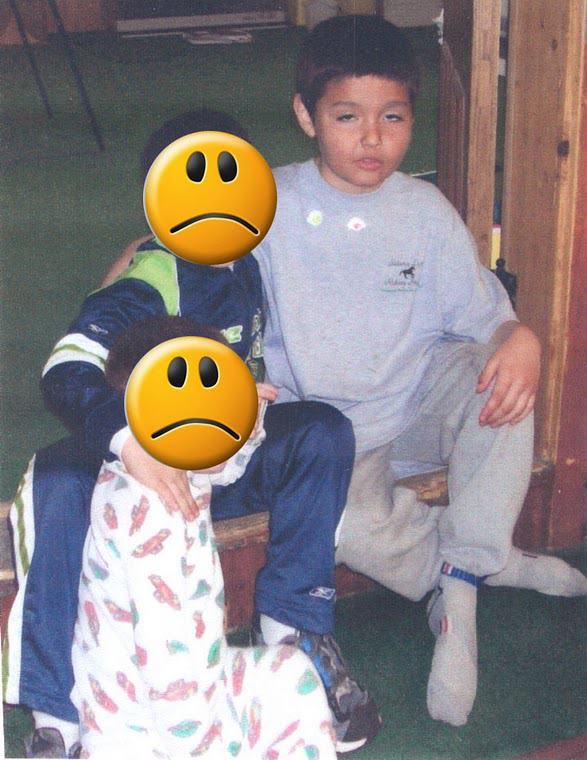Panel examines policies on placing children in state custody
Posted on 15 June 2010
By Lewis Delavan
Arkansas News Bureau
LITTLE ROCK — Legislators questioned human services officials today on whether grandparents and other relatives are being given preferential treatment in placement of children removed from their parents’ custody.
Cecile Blucker, director of the Division of Children and Family Services at the Department of Human Services, told members of a legislative subcommittee the agency’s goal is to boost its services to families to avoid placing children in the foster care system. If family reunification is not possible, permanent placement with relatives or other adults who have a close relationship to the child is the preferred option, she said.
Blucker also gave a progress report on the training and placement of new foster care caseworkers as the subcommittee undertakes a comprehensive study of DHS goals, policy initiatives, programs, procedures and rules affecting grandparents and other relatives of children removed from their parents and placed in state custody.
The study proposal is sponsored by Reps. Mike Burris, D-Malvern, and Johnnie Roebuck, D-Arkadelphia.
Burris told DHS officials Tuesday that family members should receive preference for custody of children removed from their parents, but that his constituents have expressed concerns that the agency might remove children from parents without the knowledge of grandparents and other adult relatives.
He and Rep. Richard Carroll, D-North Little Rock, said they were concerned that family members would lose contact with children who are placed in permanent custody of a non-relative.
Act 1311 of 2009 requires DHS to notify all adult grandparents and other adult relatives within 30 days of a juvenile transferred to its custody. It also requires DHS to provide the circuit court with information and recommendations on child placement and visitation with a grandparent or other adult relative. Burris, who sponsored the act, said he wants to ensure the requirement is followed.
“What price do you put on connectivity and love?” Burris asked.
DHS attorney Lisa McGee said family members always receive preference for placement but other factors also are considered, such as the household’s financial ability to care for children or whether relatives were aware of abuse.
“A lot of times we find that family members knew abuse was occurring,” McGee said.
Blucker told the panel that new child welfare caseworkers are helping DHS improve its oversight of children in state custody. Filling 100 new caseworker slots last fall is just starting to show results, she said.
“We want to truly transform the (child welfare) system, rather than just meet standards,” Blucker told members of a House subcommittee on children and youth.
The Legislature last year authorized the new caseworkers as part of an upgrade of the state’s child welfare system in response to a string of cases involving the deaths and abuse of children in the state’s foster care program.
Blucker said DCFS is partnering with Casey Family Programs to improve its services. The Seattle-based private foundation is conducting staff training around the state, she said.
Improved compliance with its standards will help children, Blucker said.
“We want to hold people accountable and have the right person in each position,” she said.
Caseworkers are required to make monthly on-site visits to foster homes, but Blucker said currently about 64 percent of the visits are occurring. Likely more visits actually are being conducted but not properly documented, she said.
Staffing improvements should boost compliance, Blucker said.
Also, she said, staff turnover is down to about 20 percent to 22 percent, and adding caseworkers has helped improve morale.
She cited exit surveys that showed departing caseworkers felt they lacked their supervisor’s support. Placing the right person in supervisory slots and ensuring compliance with standards has boosted retention, she said.
http://arkansasnews.com/2010/06/15/panel-examines-polices-on-placing-children-in-state-custody/
Exposing Child UN-Protective Services and the Deceitful Practices They Use to Rip Families Apart/Where Relative Placement is NOT an Option, as Stated by a DCYF Supervisor
Unbiased Reporting
What I post on this Blog does not mean I agree with the articles or disagree. I call it Unbiased Reporting!
Isabella Brooke Knightly and Austin Gamez-Knightly

In Memory of my Loving Husband, William F. Knightly Jr. Murdered by ILLEGAL Palliative Care at a Nashua, NH Hospital
Subscribe to:
Post Comments (Atom)
No comments:
Post a Comment